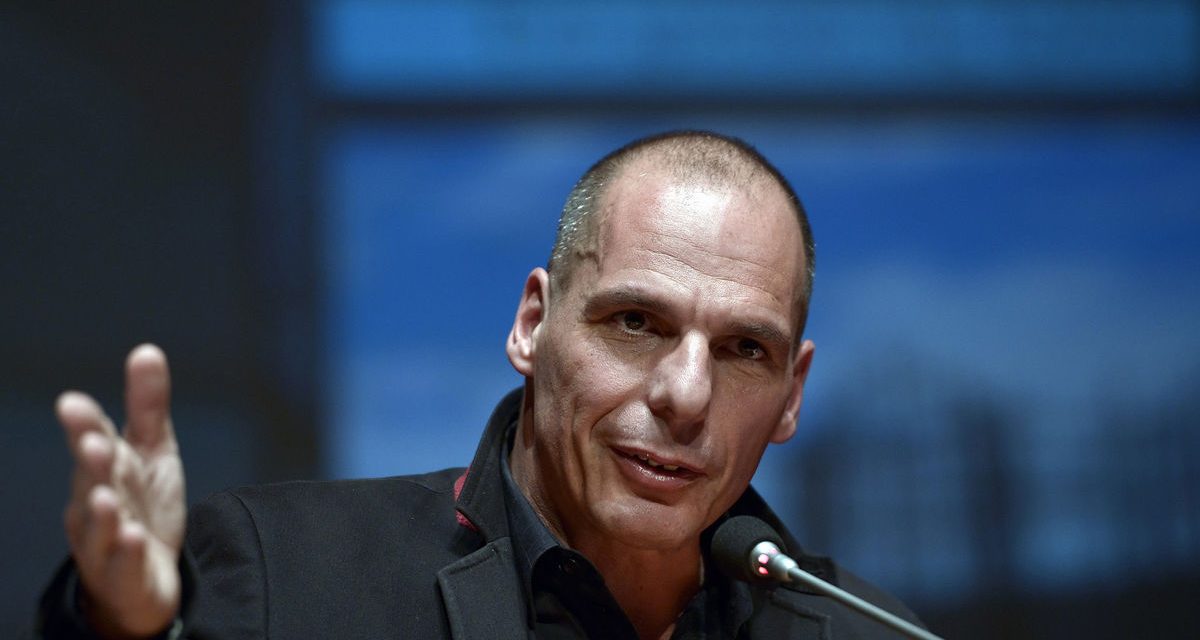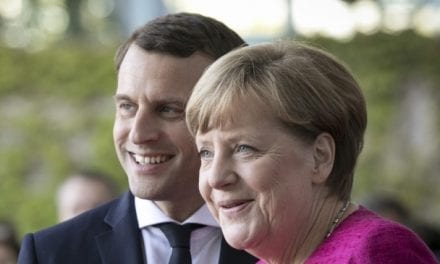Yanis Varoufakis now has chosen to resign
By Ana Swanson, Washington Post
Yanis Varoufakis has the wardrobe to match his reputation. He doesn’t wear a tie, leaves his dress shirts untucked and tools around town on a Yamaha motorcycle. He is an unlikely heartthrob in Germany, where a news anchor compared him to Bruce Willis: “Visually, he’s someone you could image starring in a film like ‘Die Hard 6.’ ” He’s a prolific tweeter, with 526,000 followers, and he runs a low-budget blog. His wife, installation artist Danae Stratou, is pretty cool, too; she is thought to have inspired a song by the band Pulp.
As Greece’s finance minister, Varoufakis, 54, had the barbs to match his look. In the past few days, he accused Greece’s creditors — France and Germany — of economic “terrorism.” Previously, he described the austerity measures imposed on Greece by Europe as “fiscal waterboarding.” And he has derided the troika – the European Commission, the International Monetary Fund and the European Central Bank — as “a committee built on rotten foundations.”
But it turned out that the brash Varoufakis was a little too brash. After using his confrontational personality to help galvanize opposition to the European austerity program that Greece voted to reject by a surprisingly wide margin Sunday, Varoufakis resigned Monday. He hinted that Greek Prime Minister Alexis Tsipras thought he may have become a bit of liability with the Europeans, who the Greeks still need to negotiate with if they want to fund their banks and stay within the euro zone.
“The referendum of 5th July will stay in history as a unique moment when a small European nation rose up against debt-bondage,” Varoufakis wrote on his blog on Monday. “Soon after the announcement of the referendum results, I was made aware of a certain preference by some Eurogroup participants, and assorted ‘partners’, for my… ‘absence’ from its meetings; an idea that the Prime Minister judged to be potentially helpful to him in reaching an agreement.”
He added: “I shall wear the creditors’ loathing with pride.”
Varoufakis, an economist who until recently was a visiting professor at the LBJ School of Public Affairs at the University of Texas at Austin, pledged his support for Tsipras and the new finance minister. The Europeans are meeting Monday and Tuesday to look for a new solution to the crisis, while Greece has nowhere to turn for the cash it needs to keep its banks running and government operating. Without action soon, it might be forced to abandon the euro.
It doesn’t appear likely that Germany, the continent’s economic behemoth and decision maker, is looking to ease its stance at all post-referendum. Many critics say the decision to hold a referendum — made a week ago after Tsipras broke off negotiations over another financial relief package saying they were fruitless — now exposes Greece to a worse depression than it already has been experiencing. “Tsipras and his government are leading the Greek people on a path of bitter abandonment and hopelessness,” German Economic Affairs Minister Sigmar Gabriel said, according to Reuters. Tsipras had “torn down the last bridges on which Greece and Europe could have moved towards a compromise”
Navigating this treacherous landscape will no longer fall to Varoufakis, who has been orchestrating his country’s response to the debt crisis that has pushed Greece’s unemployment rate to 25 percent. The Greek government had been urging voters to say no to the austerity package, which included pension cuts, reduced military spending and increases in value added tax, among other measures. Varoufakis had insisted that a “no” vote would not necessarily result in Greece leaving the euro, that future negotiations could focus on debt restructuring and that the referendum would lead to a better future.
An ‘erratic Marxist’
Varoufakis is a fascinating character — a brilliant economist with a fiercely independent viewpoint.
He calls himself an “erratic Marxist” — he considers some of Marx’s ideas hugely influential in framing his thinking, and he totally discards others. This stems in part from his background: His father was a communist-turned-steel magnate who spent eight years in a concentration camp under a Greek military dictatorship, while his mother worked for gender equality with the socialist party.
“In truth, Karl Marx was responsible for framing my perspective of the world we live in, from my childhood to this day. It is not something that I volunteer to talk about in ‘polite society’ much these days because the very mention of the M-word switches audiences off,” he wrote.
Yet Varoufakis says he is not really a Marxist. As a young student of economics, he chose to pursue neoclassical economics rather than Marxism, and his writing suggests he believes that Marxism is deeply flawed in some ways and impractical in others.
What Varoufakis borrows most clearly from Marxism is not an economic system, but a way of thinking about capitalism. He says that the value of Marx’s “dialectic” — a tradition of argument that actually began with the Greeks — is seeing in something the seeds of its opposite. He says that popular thinking about economics is sorely lacking in this approach. Most people don’t understand the “joint production” of debts and surpluses, of growth and unemployment, wealth and poverty, good and evil, he wrote.
Varoufakis has a complex attitude toward the euro zone. He has been a harsh critic; he campaigned against the Euro in the 1990s, and believes the European Union has deep inequalities. Yet he also believes its disintegration could be dangerous, leading to a rise of fascism in Europe.
“If the Eurozone collapses, we are all going to be embroiled in a postmodern 1930s,” he said in the seminar below in 2013.
Varoufakis says he was deeply influenced by the experience of watching Britain under the conservative government of Margaret Thatcher. At the time, he expected the continued recession under Thatcher to revive the left, but instead the long-lasting recession weakened the left and permanently undermined progressive politics in Britain, he writes.
This is a lesson he takes to the Euro zone
“I confess I would much rather be promoting a radical agenda, the raison d’être of which is to replace European capitalism with a different system,” he wrote in February. “Yet my aim here is to offer a window into my view of a repugnant European capitalism whose implosion, despite its many ills, should be avoided at all costs. It is a confession intended to convince radicals that we have a contradictory mission: to arrest the freefall of European capitalism in order to buy the time we need to formulate its alternative.”
Most of all, Varoufakis says he opposes the suffering imposed by austerity. He argues that bankrupt banks face more lenient conditions than bankrupt states. He also described Greece as a destroyed economy that is borrowing from one European bailout mechanism to pay back another, a situation he called “the epitome of misanthropy.”
“I don’t have a dogmatic position on whether one should leave the euro or not; for me it’s a question of costs and benefits of human suffering,” he said in the 2013 speech.
“Europe’s elites are behaving today as if they understand neither the nature of the crisis that they are presiding over, nor its implications for the future of European civilisation,” he wrote in February. “Atavistically, they are choosing to plunder the diminishing stocks of the weak and the dispossessed in order to plug the gaping holes of the financial sector, refusing to come to terms with the unsustainability of the task.”
*Ana Swanson is a reporter for Wonkblog specializing in business, economics, data visualization and China. She also works on Know More, Wonkblog’s social media channel.



















